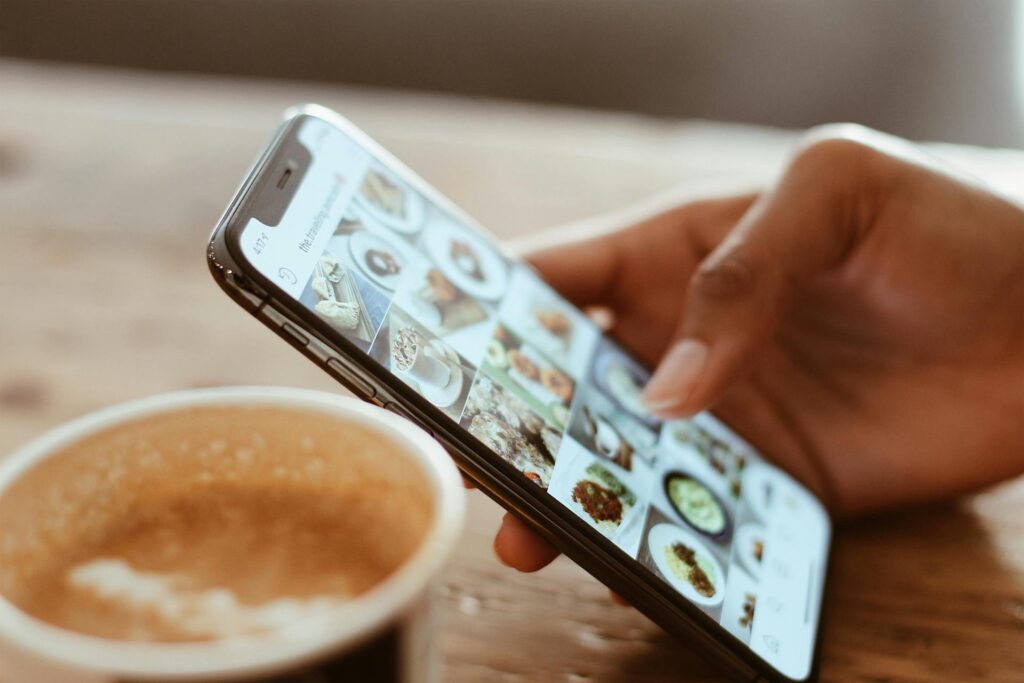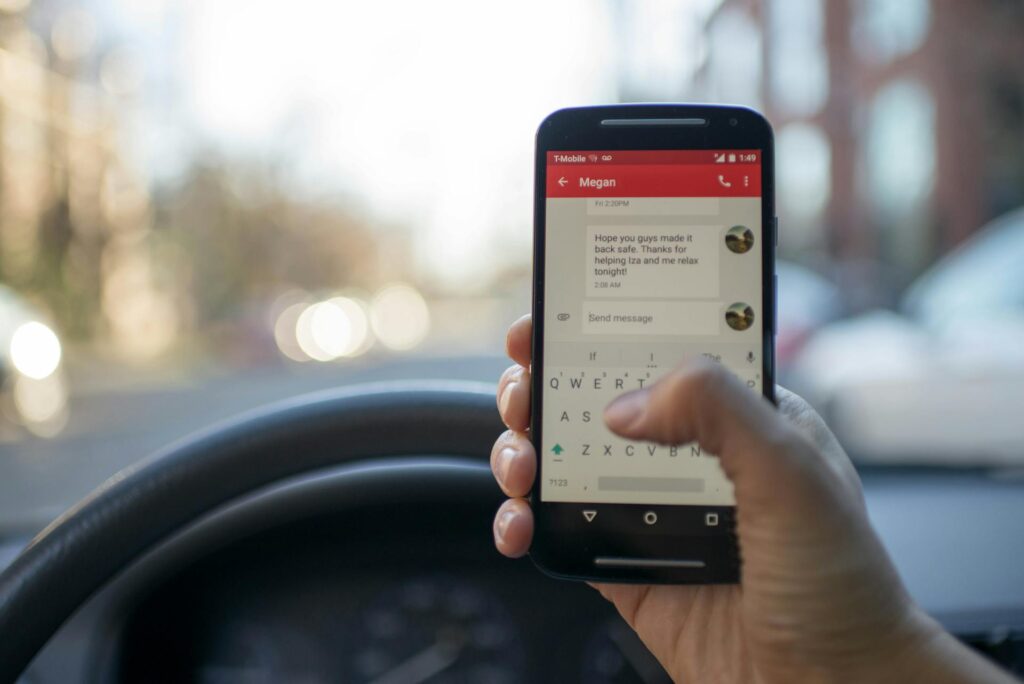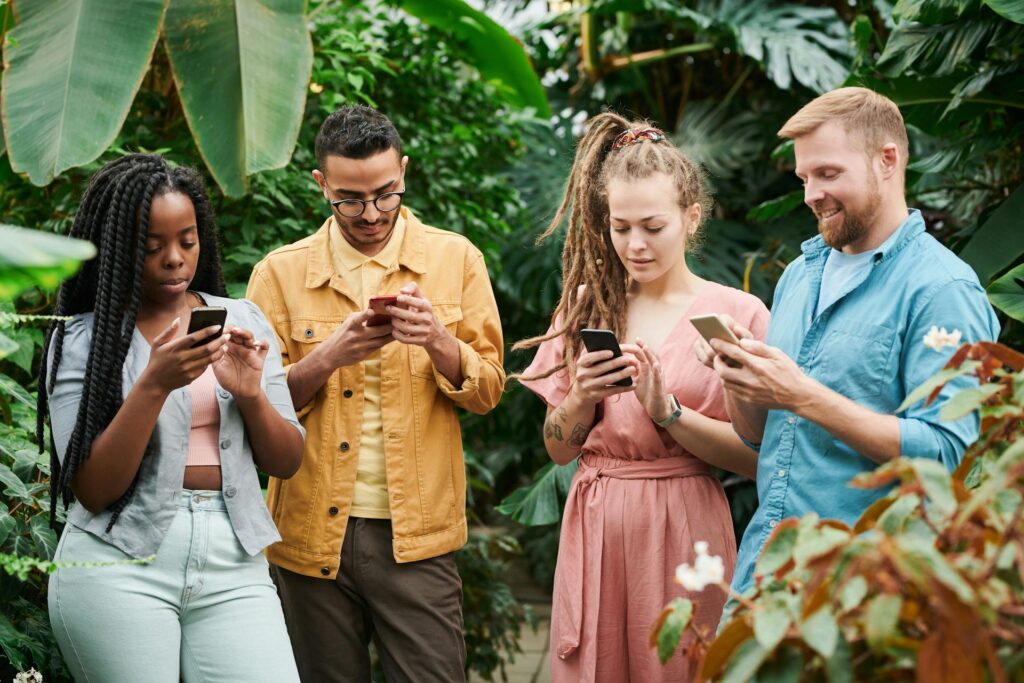It’s a bit ironic reading about the harmful effects of screen time on a screen. But here we’ll look at what too much screen time is doing to us, and how we can dilute its potency.
I leafed through what the experts say about how screens are affecting us. There are some hard but enlightening facts that will hopefully propel us towards a sustainable screen time limit.
How much screen time are we having?
We all depend on our phones (and other screens) far more that we want to, but aren’t they incredibly convenient? I don’t want to get out a map to find the restaurant I’ve booked for dinner; my phone’s got the whole route worked out. There are endless examples. I reckon we can all think of times when we’re grateful we can consult our smartphone.
However, the data shows us up. Some stats differ slightly but they’re all saying the same thing: most adults in the world spend the majority of their day on their screens or connected to the internet. According to one study, UK adults spend 76% of their waking hours online and another study reveals that Americans spend as much as 11 hours a day looking at a screen.

Youths are no different when it comes to phone addiction; adolescents in one survey spent an average of 7.5 hours a day on screens and even children of 8 years spend around 5.5 hours on screens.
Another astonishing fact is that people check their phones around 150 times a day. It sounds ridiculous at first, but since checking our phones has become almost an unconscious impulse, it sounds about right.
These numbers reveal an excessive use of screens. But unfortunately, excessive is common today. We can’t help that office jobs require computer use or that we need to be contactable. It’s our impulse to use a screen every hour of the day that needs tackling.
How is screen time affecting my brain?
Powerfully, but subtly. The most obvious impact is addiction.
In one study, students admitted feeling acute distress when they go without their phones for 24 hours.
How can that be?

Every time we open our phones or laptops, we are presented with many little dopamine triggers. Scrolling through social media, online shopping, videos, emails and so much more draw us in. Algorithms set to our preferences know us too well and put everything we love at our fingertips.
But what effect does this have?
Regular exposure to dopamine causes the brain to tolerate these high levels and it lowers our baseline dopamine concentrations. It works like a drug. We lack a basic level of dopamine when we’re not on our screens, and the thirst for another kick manifests as depression and anxiety.
What do we do next? Pick up our phones of course.
But in every dopamine low, synapses become less active and reward pathways in our brain become tangled. Mundane tasks don’t give us enough satisfaction and become obstacles. Lengthy tasks, which usually provide the most rewarding feelings, become incredibly difficult and some of us can’t complete any prolonged task.
Those algorithms seem to be doing us a favour when they show us our favourite things. But it means that search results only show us information that we favour and exclude anything that might challenge our worldview. Big companies pay to feature the content that is exactly what we’re looking for so that we spend our money on them. Our phones become a reassuring, agreeable friend that we can’t do without.

Many people report chronic insomnia, brain fog, short-term memory loss, vision strain and headaches from staring at screens too much. The WHO revealed that increased screen time also causes obesity, high-blood pressure and insulin resistance. Smartphone addiction has even been compared to hypnosis as having an identical effect on our brains.
We can probably relate to plenty of these ill-effects or see them in others. Unfortunately, there’s more.
How are screens affecting my relationships?
It’s widely reported that people are using screens as an escape from real life issues. Many suffer depression from a dopamine imbalance, struggle with social comparison and low self-esteem. To make it worse, users tend to seek content that is a reflection of their low moods so the negative content they choose exacerbates depressive symptoms.
People with an online gaming addiction have reduced grey matter in their brain. This is the substance that deals with empathy, compassion and translating physical signals into emotion. So it’s a pretty big hit on our psyche.

Another study reports that casual conversation is being challenged. We’ve all witnessed the silent but magnetic presence of mobile phones when people are hanging out together.
Data shows that individuals with high phone use have lower emotional intelligence, social skills and social competence. Exposure to the lives of models, celebrities, body-builders and the ultra-rich has an obvious impact on us, reducing many people’s self-confidence and inciting anxiety.
It’s a battle to have real relationships and authentic conversations when the perfectly amenable friend in our pocket is so much easier to deal with.
So how can we get round this?
As idyllic as it must be to live off-grid on a farm in the middle of nowhere, we don’t have to completely eliminate screens from our lives to escape their degrading effects.
I found some good tips in the book The Ruthless Elimination of Hurry by John Mark Comer for limiting phone usage:
- Turn your phone’s screen to greyscale. The colours have an addictive effect.
- Consider putting important apps like email, LinkedIn, social media on your PC so you only check them at certain times of the day. That way you can’t just check them anytime.
- Only look at emails once a day and sort through them all in one go.

Don’t look at a screen for one hour before bedtime. Pick up a non-screen hobby. Use queuing time for contemplation. At work, look away from the screen for 20 seconds every 20 minutes.
You might need a social media detox. Or maybe you could quit altogether.
When I’m not using it, I either turn my phone to aeroplane mode or put it in a different room. I also make a habit of putting my phone away at mealtimes.
Lastly, use a blue-light filter on your laptop and phone. It clears up headaches and vision problems. Here are some decent ones at a good price: https://www.ocushield.com/
Implementing these have given me peace, clearer headspace and more time on my hands. Have a go to see how they sweep away stress in your life.
Read more about health here or take a look at my copywriting portfolio here.
